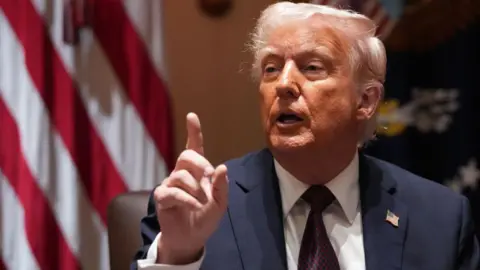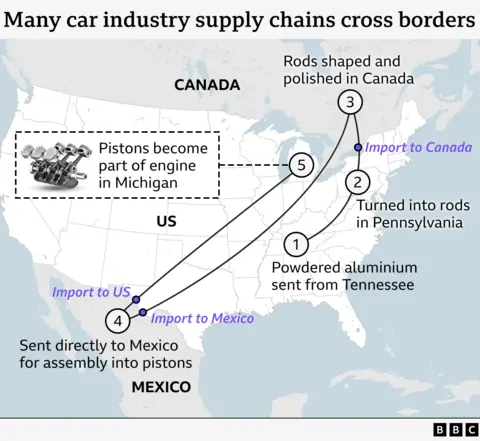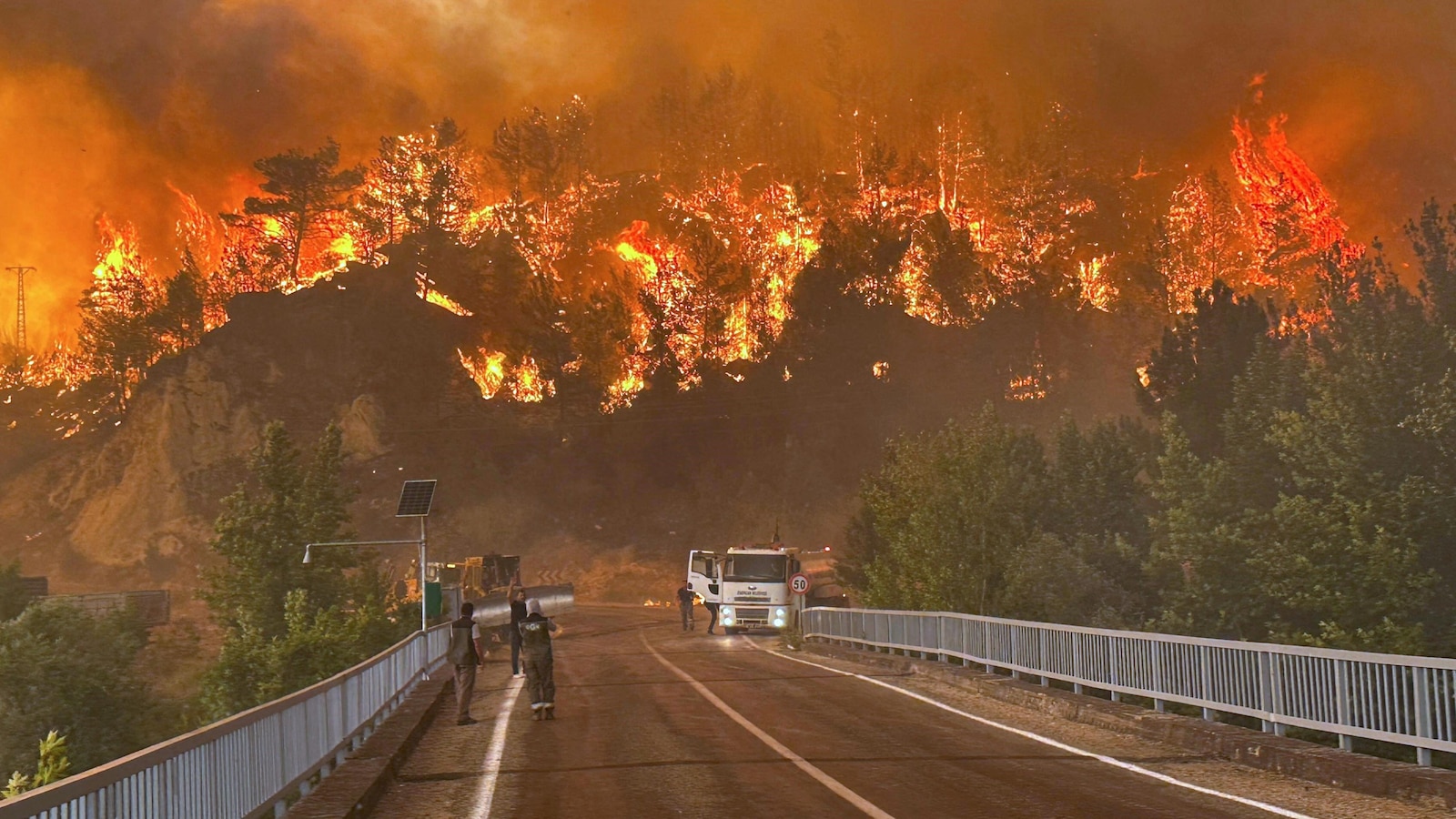ARTICLE AD BOX
Bernd Debusmann Jr
BBC News, Washington
Watch: Defiance or diplomacy - how Canadians want to deal with Trump
US President Donald Trump says he had an "extremely productive" first call with Canadian Prime Minister Mark Carney, amid an ongoing trade war between the two North American allies.
In a Truth Social post, Trump said that the two will meet "immediately" after Canada's upcoming elections on 28 April to discuss "politics, business, and all other factors".
Trump's planned 25% tariffs on vehicle imports to the US is to come into effect on 2 April, which could be devastating for the Canadian car industry.
On Thursday evening, Carney said the US was "no longer a reliable trading partner" and that Canada's old relationship with the US "is over".

 Getty Images
Getty Images
Carney, currently in the midst of his election campaign, has not yet commented on his call with Trump.
The US president's tone on Friday stood in contrast to his past remarks about Canada, particularly his frequent jabs at Carney's predecessor, Justin Trudeau, whom he mockingly referred to as "Governor Trudeau".
Historically, Canadian leaders prioritise an early call with their US counterpart soon after becoming prime minister.
The call between Carney and Trump, however, is the first since the new prime minister took office on 14 March.
In addition to imposing tariffs, Trump has repeatedly suggested that Canada should become the 51st US state—an idea that has sparked widespread backlash among Canadians.
Carney, who leads Canada's Liberal Party, has vowed to impose retaliatory tariffs with "maximum impact" on the US. He has also said that the vital Canada-US Automotive Products Agreement signed in 1965 is "finished" as a result of Trump's tariffs.
The US president's proposed auto tariffs could impact as many as 500,000 jobs in the Canadian auto industry.


The US has already partially imposed a blanket 25% tariff on Canadian goods, along with a 25% duty on all aluminium and steel imports. Canada has so far retaliated with about C$60bn ($42bn; £32bn) of tariffs on US goods.
The new car tariffs will come into effect on 2 April, with charges on businesses importing vehicles starting the next day, the White House said. Taxes on parts are set to start in May or later.
Worsening US-Canadian relations have become a key electoral issue in Canada's general election.
Pierre Poilievre, leader of the Conservatives, the main opposition party, has called the tariffs "unjustified and unprovoked", while left-wing NDP leader Jagmeet Singh referred to them as a "betrayal".
Trump has also warned Canada against working with the European Union against US reciprocal tariffs that he is expected to announce soon.
Any effort to do so, he said, would be met with "large scale tariffs, far larger than currently planned".

 3 months ago
82
3 months ago
82








 English (US) ·
English (US) ·